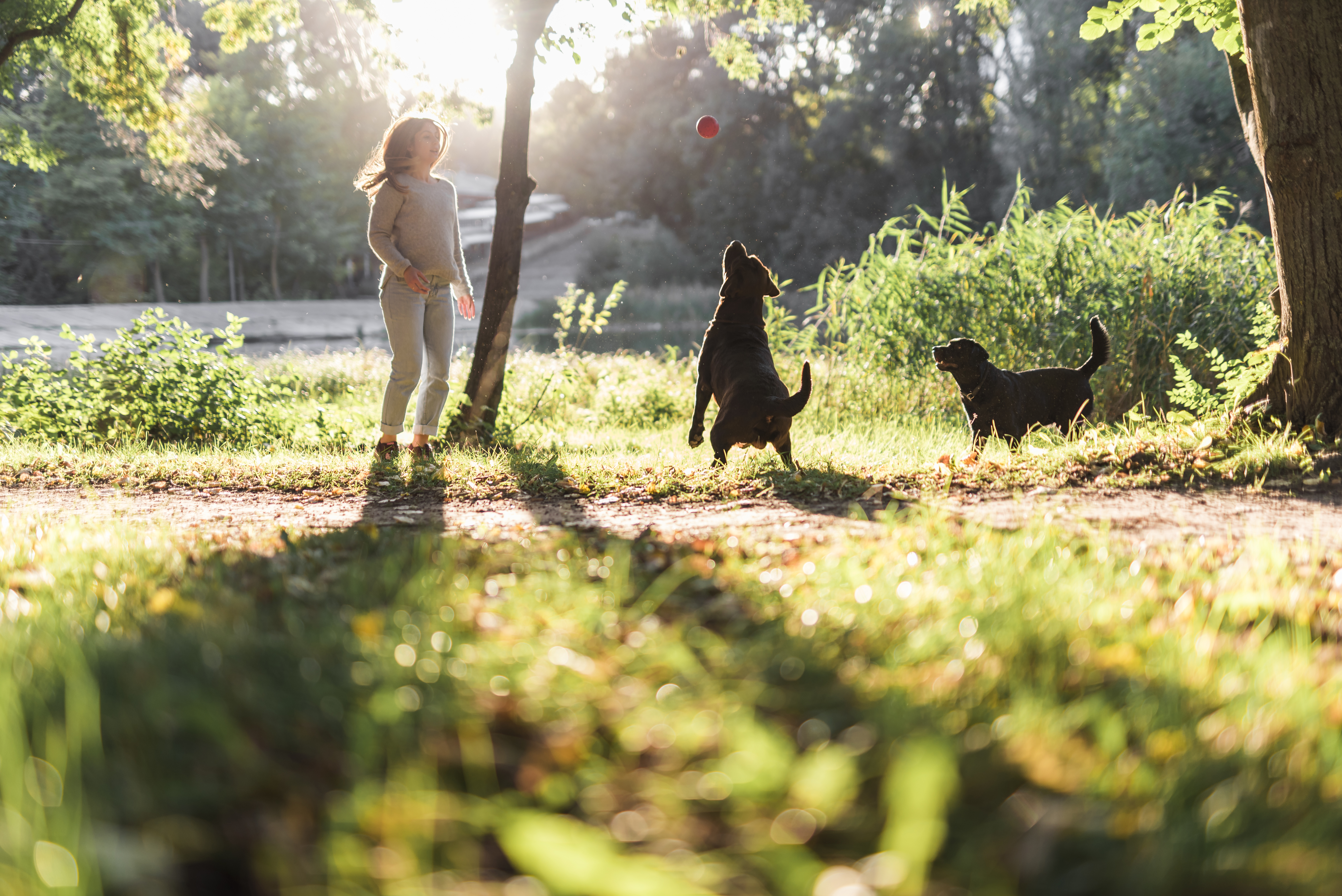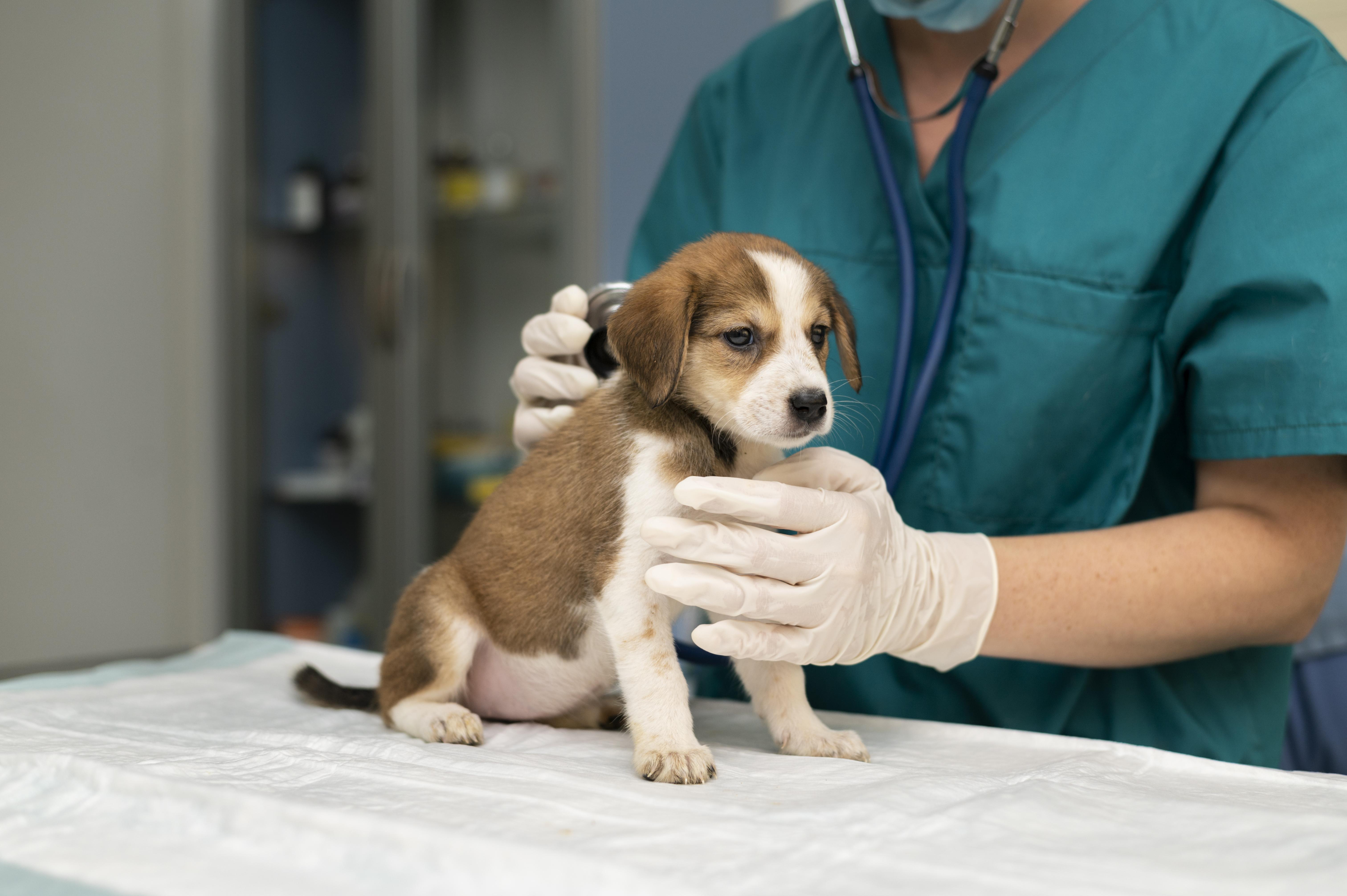
Things to Consider Before Buying a New Puppy
The decision to bring a new puppy into the family can be exciting but should not be made in haste. There are many things to consider BEFORE buying a new puppy. For owners that have had dogs before, the decision might not be as daunting. But for new puppy owners, there is much to learn and know before adding in a new furry family member!
In this article, we will discuss important aspects of getting a new puppy that potential owners might not have thought about initially! We’re here to help!
Time
Puppies require a lot of time. Even more, laid-back breeds will require certain amounts of supervision and interaction as they begin their life journey. Before they are brought to their new homes, it is up to a breeder or seller to ensure that a puppy has everything they will need to be a happy, healthy, and positive ambassador for their breed. This is accomplished through training and consistent, daily socialization with as many people, places, items, and events as possible – but in measured amounts so as not to be overwhelming.
So, if a potential owner is a relatively busy person who is gone for most of the day or has a lot of outside-the-home activities that might not be dog-friendly, they may have to put more thought into whether getting a dog is the right decision. Dogs, especially puppies, should not be left home alone for long periods.
First, puppies will have to be bathroom trained. They cannot hold it for more than a few hours as they grow. They will need to be taken to a designated bathroom area or taken outside. Being on a schedule works best and can get positive results quickly. Missing scheduled times or not having a schedule at all can result in frequent accidents.
Second, puppies have a lot of energy! And if that energy is not spent on positive activities and with safe, appropriate toys or games, they will resort to other means of entertainment. This could mean partaking in destructive behaviors like chewing on furniture or other items they can get their paws on. Puppies need to chew as they grow and get their adult teeth, so things could get out of hand if this is not dealt with as soon as possible.
It comes down to taking the time to interact with a puppy and train them on what is okay to chew and what is not consistently. Positive guidance and reinforcement can be started as soon as you bring a new puppy home – a new owner just has to have the time, patience, and energy to keep up with it. Dogs are smart and quick to catch on, especially with great motivators like treats or undivided attention. But don’t be discouraged if they don’t understand immediately. There is a method to understanding how dogs learn and taking the time to work with your puppy to get results that will make a new owner happy and benefit a puppy as well!

Exercise Needs
Physical: Physical exercise should be offered daily, at least four to five times a day for most puppies, and should be five to ten minutes. Puppies will typically tire themselves out through play and exploration. It’s important not to push a puppy too hard or have them attempt any rigorous exercise, as every part of their bodies and minds are still developing. Puppies will sleep for a minimum of 17 hours a day, wake up throughout with bursts of energy, and then go back to sleep.
Mental: Early puppy training is a great way to offer a puppy mental stimulation. There are also many games designed to stimulate your dog’s mind, including puzzles and treat cubes. Mental exercise should be offered at least two times a day for puppies and can be as simple as a five-minute training session.
Sensory: Puppies can be introduced to scent discrimination by showing them bits of treats and hiding them under something in front of the puppy, then letting them seek it out. Tactile stimulation is significant at this stage. Encouraging puppies to walk on various surfaces and tossing treats to them will offer sensory stimulation while also habituating the puppy to walk on different surfaces. Having them follow a treat over small obstacles, such as a broom handle on the ground (never elevated at this age), also builds your pup's motor skills, coordination, and confidence. Auditory stimulation can be offered by gently rattling a bottle with rocks in it and placing it on the floor near treats to encourage a puppy to locate sounds and teach them not to be afraid of random and sudden noises. Also, playing thunderstorm noises and the vacuum cleaner in a distant room while feeding them treats will also help. Each week, you can move your puppy closer to the sound or increase the sound just slightly and reward your puppy for investigating it. Visual stimulation is also necessary and can be done by introducing puppies to new objects and obstacles daily. Encourage and allow them to investigate helps them to recover from visual startle responses and provides great visual stimulation. Owners should try to exercise at least one sense a day.
Instinctual: Puppies from traditional working breeds may benefit from sitting in on a class and watching older dogs train. Hunting dog puppies can be introduced to the scent of game or quarry by using scent and training kits, retrieval bumpers, etc. There are many different ways to allow puppies to exercise their instincts, natural drives, and talents. Twice a week, puppies should be allowed to exercise those instincts either through a special outing or by participating in a class designed to do so. Just as it is important to exercise instincts, it’s also important to train puppies to control their instincts. To do this, give puppies special rewards for coming to you when called or following a “focus” or “sit” command when in the presence of something that triggers their instincts.
Social: A puppy’s social development doesn't end when they leave the breeder or seller's home. In fact, some of the most critical periods for development occur when they are in their new homes. This makes the continuation of a puppy's social development by the new puppy owner paramount. New owners should ensure that puppies meet new, puppy-friendly people daily and that these interactions are positive. These interactions should support training efforts, such as having puppies sit for friendly greetings and not permitting them to jump up. This intensive but controlled socialization should continue throughout the pup's first year.

Cost
When buying a new puppy, cost is a big factor that potential owners must consider to make sure they budget enough to sufficiently afford and support a new puppy - from when it gets home to the entirety of its life.
Puppies have needs just like people do, and those needs can add up quickly! In an article found on Pawlicity Advisor (pawlicity.com), they break down the average costs of a new puppy into four categories: Veterinary Needs, Pet Supplies, Pet Care Services, and Health Care Costs. These are some averages a new owner can expect to pay, but prices may vary according to locations across the United States.
Veterinary Needs:
- Vaccination: $80 - $150
- Spay or Neuter Surgery: $35 - $500
- Microchip Identification: $25 - $60
- Flea, Tick, and Heartworm Prevention: $50 per month
Pet Supplies
- Food: at least $200 a year for quality dog food for smaller dogs and up to $500 a year for large breed puppy food or pets with special dietary needs.4
- Food and water bowls: $10 to $50.
- Crate/bed: $25 and $250.
- Potty pads: $20 and $100, depending on your dog's size.
- Poop bags & dispense: Once you get past potty training, you'll trade one expense for another at about $5 to $10 per 100-count of bags.
- Leash: between $10 and $50
- Collar: between $6 and $50 for your puppy’s collar.
- Toys: at least $10, or upwards of $200, for toys in your puppy’s first year.
- Treats: $50 to $300 for treats yearly.
Pet Care Services
- Dog walker: $15 to $40 per 30-minute walk.
- Obedience training: $250 average.
- Dog groomer: A basic bath and blow dry for your puppy at the groomers might only cost $20 to $30, but dogs will also need their nails trimmed, teeth brushed, ears cleaned, and anal glands expressed. The full suite of services runs about $50 to $75 for small- to mid-sized breeds and twice as much for large-breed dogs.
- Doggy daycare and boarding: roughly $40 per eight-hour visit, whereas overnight stays can cost upward of $75 or more.
Health Care Costs
- Basic vet care: about $150. Remember that you will also need to budget for roughly four vet visits in your puppy's first year, which can amount to approximately $600. If your pet catches a common illness in puppies and requires a sick visit, it might cost another $75 to $200 for laboratory tests, diagnosis, and treatment.
- Emergency vet care: The average emergency vet visit costs around $1,000 but often amounts to $5,000 or more for surgery and hospitalization.
- Pet insurance premium: The average cost of pet insurance for a dog is less than $50 per month, but usually much cheaper for puppies.
[From: How Much Does A Puppy Cost? Here's Everything You Need to Know]
Conclusion
Getting a new puppy can be very exciting, but it is not a decision to make lightly. Puppies are living, breathing creatures with needs that must be met daily and throughout their life. There will be expenses that come with getting a puppy, along with exercise and time requirements. Within a household, if children or older pets are already in the picture, certain accommodations must be made to ensure a positive experience and life for all involved. Training will be vital in the early years of life so that puppies can become goodwill ambassadors of their breed and interact with the world around them confidently. So, if you have the proper information, finances, time, and energy to dedicate to a new puppy, then they will be the best decision you make, and you can give them the great life they deserve!










